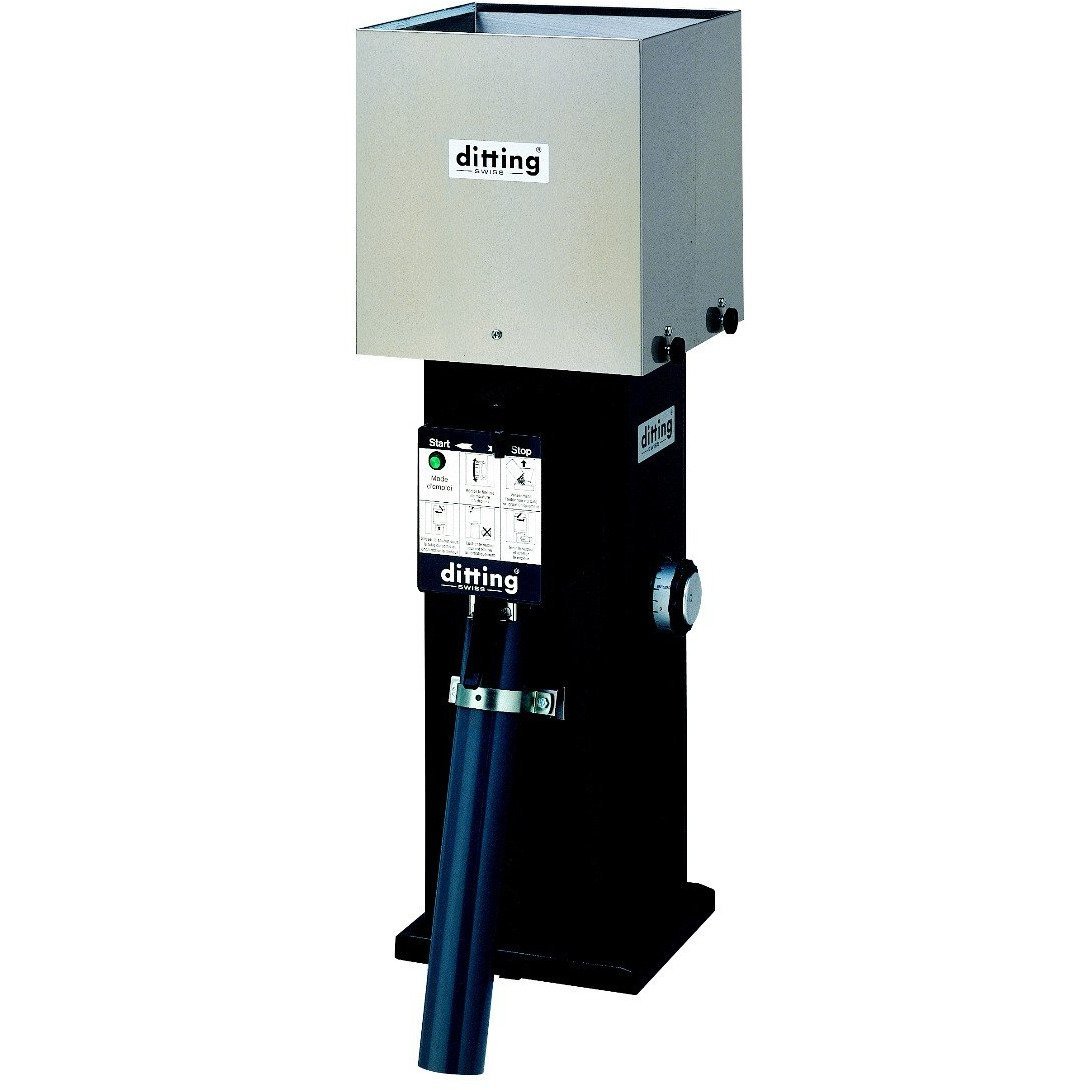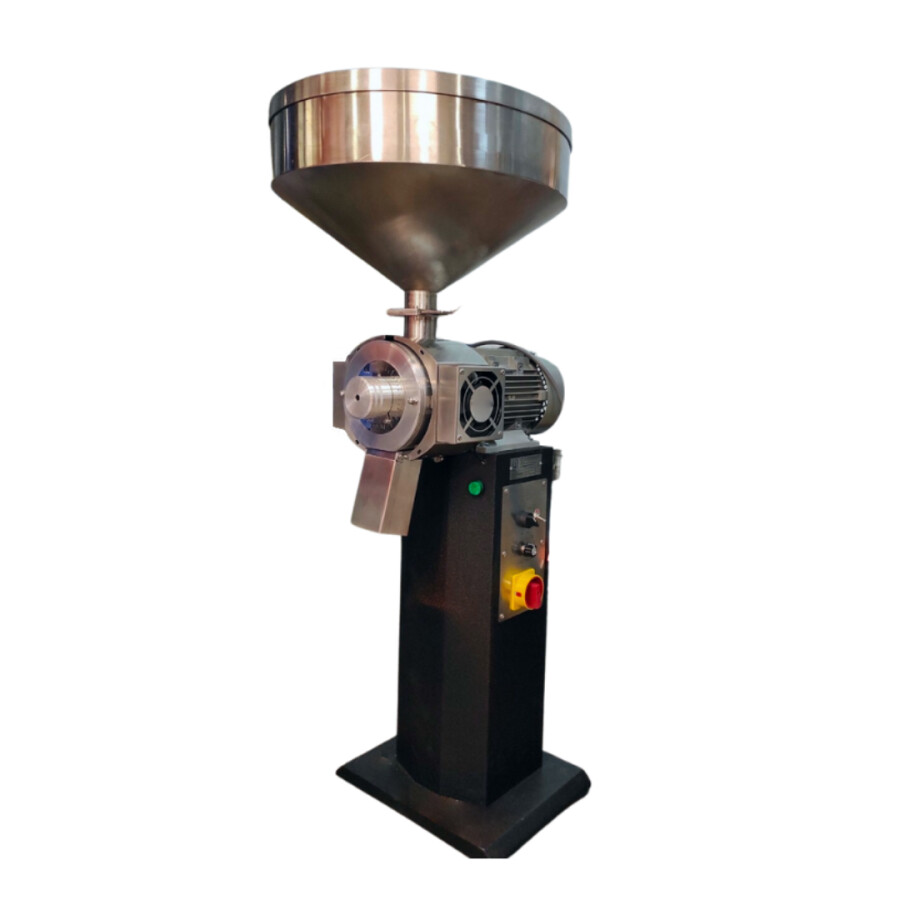Leading Functions to Seek in an Industrial Coffee Mill
When assessing a commercial coffee grinder, it is vital to determine key attributes that impact both performance and long life. Uniformity in grind size is vital for optimum extraction, while adjustable grinding speed enables an equilibrium in between effectiveness and quality. Additionally, the choice of products and layout contributes dramatically to resilience and simplicity of maintenance. The subtleties of these functions can significantly affect not only the quality of coffee generated yet likewise the overall functional efficiency. Recognizing these elements is vital for making an educated choice that fulfills details organization requirements.
Work Dimension Consistency
While different factors can influence the top quality of brewed coffee, grind dimension uniformity continues to be paramount in accomplishing optimum removal. The uniformity of coffee grounds directly impacts the developing process, as uneven particle sizes can cause over-extraction or under-extraction. This inconsistency results in imbalanced flavors, where certain notes may be overpowering while others are muted.
Industrial coffee grinders are developed to supply a high degree of accuracy, usually using burr grinding systems to guarantee a consistent work size. Unlike blade grinders, which can create a mix of fine and coarse fragments, burr mills crush the beans between two surfaces, enabling much better control over grind size. This consistency is essential across different brewing methods, whether espresso, French press, or pour-over, as each technique requires particular work dimensions for ideal taste extraction.
In addition, consistency in work dimension adds to the overall performance of the brewing procedure. A consistent work permits for also water flow, decreasing the threat of enhancing and channeling removal performance. In summary, buying an industrial coffee mill with an emphasis on grind dimension consistency is vital for accomplishing premium coffee with desirable taste profiles.
Grinding Speed
Grinding rate plays a vital function in the total performance of commercial coffee mills, directly influencing both the high quality of the work and the performance of the operation. Industrial Coffee Grinder. Greater grinding speeds can significantly improve the throughput, making it possible to refine larger amounts of coffee beans in a shorter period. This is specifically vital for services that depend on high-volume manufacturing, such as coffee roasteries and cafes
Nevertheless, while speed is necessary, it is equally important to balance it with the top quality of the grind. Exceedingly high grinding rates can produce warmth, which may detrimentally affect the taste account of the coffee by triggering the beans to shed vital oils and aromas. For that reason, a mill that provides flexible rate settings can supply optimal versatility, permitting operators to tailor the grinding procedure according to particular demands.
Additionally, the grinding speed ought to be constant to make certain harmony in the work dimension, more adding to the overall taste and brewing top quality of the coffee. In recap, reviewing grinding speed is vital for picking a commercial coffee grinder that fulfills both efficiency and top quality demands.
Build Top Quality and Toughness
The efficiency of a commercial coffee grinder is not entirely figured out by its grinding speed; build high quality and durability are just as essential variables that influence long-term efficiency and dependability. A well-constructed grinder will certainly hold up against the roughness of daily usage, making it an audio investment for any kind of business operation.

Longevity additionally includes the grinder's electric motor and inner systems. Industrial important site coffee grinders need to be furnished with heavy-duty motors qualified of sustaining long term operation without overheating. Robust burrs are crucial, as they directly affect the quality of the work and add to the general longevity of the maker.

Ease of Use and Upkeep
Regularly prioritizing convenience of usage and maintenance can substantially enhance the functional efficiency of an industrial coffee mill. Easy to use features such as instinctive controls and clear labeling are necessary for reducing downtime and making certain that operators can promptly adapt to the tools. An ergonomic design, consisting of height-adjustable receptacles and available grinding chambers, permits comfortable procedure and helps with the loading and dumping of coffee beans.
Moreover, simplicity of upkeep is essential for lengthening the lifespan of the grinder. Tools with removable components and parts developed for fast cleaning can simplify maintenance tasks, lowering the time invested in regular upkeep - Industrial Coffee Grinder. Look for grinders that incorporate self-cleaning mechanisms or need minimal disassembly, as these functions can conserve valuable labor hours
Additionally, clear maintenance routines and documents are crucial. Mills that come with extensive individual handbooks laying out upkeep treatments can help operators comply with finest methods, making certain consistent performance and quality. By buying a commercial coffee mill that emphasizes simplicity of use and upkeep, companies can boost performance, reduce this operational costs, and maintain the high criteria anticipated in coffee manufacturing.


Sound Degree Decrease
When selecting a commercial coffee mill, sound degree decrease is a critical factor that can significantly affect the workplace. High noise levels can result in employee fatigue, reduced concentration, and potential hearing damages with time, making it essential to choose a mill made with sound-dampening attributes.
Look for mills that include innovative noise-reduction modern technologies, such as sound-insulated housings see this page and vibration-dampening mounts. These features aid to decrease functional noises, producing a quieter atmosphere favorable to productivity. Industrial Coffee Grinder. In addition, picking grinders geared up with low-noise electric motors can better improve sound decrease, making certain a much more enjoyable workplace
Consider the mill's general style. Models with incorporated sound-absorbing products can substantially lower noise emissions throughout grinding cycles. The placement of the mill within the work area need to be tactical. Placing it on a steady, hefty surface can aid to decrease resonances that contribute to sound.
Ultimately, buying a coffee grinder that prioritizes sound reduction not only boosts the comfort of staff members however additionally aligns with a commitment to keeping a productive and risk-free job environment. This interest to information can result in enhanced staff member contentment and retention.
Conclusion
In summary, choosing an industrial coffee grinder necessitates careful factor to consider of numerous vital attributes. Grind dimension consistency is vital for ideal extraction, while adjustable grinding rate assists in a balance between throughput and quality.
Industrial coffee mills are created to supply a high level of accuracy, usually using burr grinding systems to guarantee an uniform grind dimension. Unlike blade grinders, which can create a mix of penalty and rugged particles, burr mills crush the beans in between 2 surfaces, permitting for much better control over work size. In recap, investing in an industrial coffee mill with an emphasis on work size uniformity is essential for accomplishing high-grade coffee with desirable taste accounts.
Grinding speed plays a critical function in the general performance of industrial coffee mills, directly impacting both the quality of the work and the performance of the procedure. A grinder that supplies flexible rate settings can supply optimum versatility, allowing operators to tailor the grinding procedure according to certain needs.